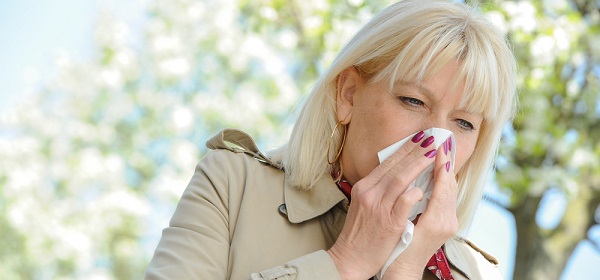The sneezy season is almost upon us, and hayfever sufferers are beginning to gear up for another round of itchy eyes and runny noses. Learn how to minimise your symptoms from the onset, and how to get rid of hayfever once it has set in.
The best way to get hayfever relief is to start planning a few weeks before you think hayfever season will set in. This means starting any diets, medications or air-filtering systems two weeks before spring really begins, as it is easier to prevent a reaction than it is to get rid of a runny nose.
Medication
There are a number of different medications on the market for hayfever relief. Antihistamines are the standby of most hayfever sufferers. They relieve (to a degree) all hayfever symptoms, from itchy eyes to runny noses. Nasal sprays and eye drops can be a good way to complement antihistamine use. In extreme cases steroid tablets or injections can be used for a short period of time. These are very effective, so you might like to consider them for special occasions where you want to feel your best, such as weddings or important job interviews.
Diet
Many people have found that changing their diet, especially during hayfever season, can have a big effect on how bad their hayfever symptoms are. Try cutting down foods, which increase mucous production, such as milk products, sugar and excessive starch, and increasing your intake of foods, which have natural antihistamine and anti-inflammatory properties. This includes fish, all vegetables except tomatoes, fruits, raw nuts and seeds, garlic and onion. Drinking two litres of water per day has also been shown to help relieve symptoms.
Local honey
If you would like to try a natural remedy for hayfever, a number of studies throughout the years have shown that exposing someone with an allergy to small amounts of the allergen can desensitise the person and lessen the effects of the allergy. Eating locally produced honey, which is made from the same pollens which are floating around in the air and giving you hayfever, has been reported as an effective way to lessen symptoms.
Chinese blackberry tea
Chinese blackberry tea, or Chinese sweet tea, is a well-known natural remedy for hayfever. Try taking it twice a day for two weeks, and see if your symptoms improve. Chinese blackberry tea can be found in most chemists with a natural remedies section.
Avoid pollen
It seems like a no-brainer, but avoiding pollen is the best way to reduce your hayfever symptoms. Closing doors and windows during hayfever season will significantly reduce the pollen count inside your house. If you can, try to work in an air-conditioned environment, as the filtered air is less likely to set off a reaction. You might also wish to install an electrostatic air filter in your car’s ventilation system, and make sure you use the air conditioning instead of rolling down the windows when you are driving to get hayfever relief.
Understanding hayfever
Allergic rhinitis develops when the body’s immune system becomes sensitized and overreacts to something in the environment that typically causes no problem in most people.
The common name for Allergic rhinitis is hay fever. It comes in two different forms:
- Seasonal: Symptoms of seasonal allergic rhinitis can occur in spring, summer and early autumn. It is caused by allergic sensitivity to airborne mould spores or to pollens from grass, trees and weeds.
- Perennial: People with perennial allergic rhinitis experience symptoms year-round. Dust mites, pet hair or dander, cockroaches or mould generally causes it.
How do nasal sprays help?
Nasal decongestants help relieve nasal congestion by narrowing (constricting) the blood vessels and reducing blood flow and swelling, allowing you to breathe more easily. Histamine is a chemical naturally produced by various cells in your body. Antihistamines work by physically blocking the H1 receptors, stopping histamine from reaching its target. This decreases your body’s reaction to allergens and therefore helps to reduce the troublesome symptoms associated with allergy. A nasal corticosteroid spray reduces swelling and mucus in the nasal passageway. It works best when used every day without stopping
Alternative treatments for hayfever
Natural remedies: Vitamin C, Horseradish and garlic and Vitamin A
– Be sure to eat a healthy whole food diet with lots of fresh fruits and vegetables and whole grains. A good diet ensures you are getting all the essential vitamins and minerals, which may be helpful in hay fever symptom relief.
– Reduce or cut out dairy foods. They are considered to be mucus producers and may increase the amount of mucus produced during hay fever bouts.
– Minimise your exposure to pollens and moulds where possible.
– Use essential oil inhalations. Combine essential oils such as tea tree, eucalyptus or lemon myrtle with boiling water in a bowl. Place your head over the bowl and inhale the steam. This can help to loosen up the mucus and get you breathing easier.
Are you a hayfever sufferer with effective natural remedies for hayfever? If so, why not share it in the comments below?
Related articles
Natural hay fever remedies
Painful sinuses: natural remedies to ease the ache
Is it a cold or flu?

